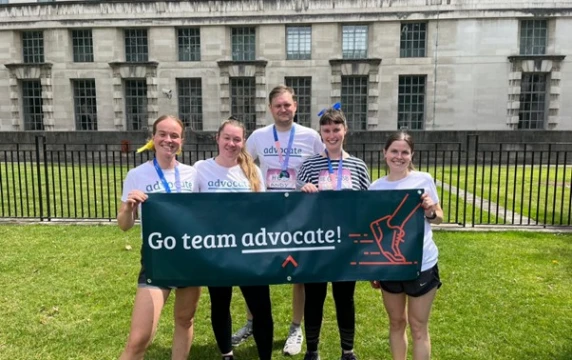At what stage in your career did you take on your first pro bono case?
I first started doing employment and social security cases with the Free Representation Unit as a BPTC student. Now as a practising barrister I still work occasionally with FRU (most recently in the Employment Appeal Tribunal) but more often with Advocate. They are both wonderful organisations.
Why did you decide to undertake pro bono work?
As a student, it was mainly to gain advocacy experience and help with pupillage applications. My reasons are different now: I get a real buzz out of using the skills I’ve developed in my practice to help clients who otherwise would not be able to get representation.
What was the most memorable case you worked on, and what did you do?
Two recent examples stand out. In one case I acted for an employee who was sacked for making a facebook post and brought a claim for unfair dismissal in the employment tribunal. The claim raised some novel issues about freedom of expression under Article 10 ECHR and how the employment tribunal should give effect to that. There were also some disputed factual issues and it was satisfying to cross-examine the respondent’s witnesses and uncover the facts that ultimately won us the case. It struck me that an unrepresented claimant would not easily have been able to make these legal submissions on human rights or unpick the respondent’s witness evidence in cross-examination.
In another case I successfully acted for a war veteran in his appeal about his war pension (a social security benefit for people who have suffered injuries attributable to, or aggravated by, military service). See Brian's case study here. I reviewed and collated the relevant medical evidence, researched the law on causation and remoteness as it applies in this context, drafted written submissions and appeared at the hearing. I found it very rewarding to put my skills to use in this way and support the claimant through the process.
What effect did pro bono work have on your career?
The cases I did as a BPTC student confirmed to me how much I enjoy advocacy and reassured me I was heading down the right track. These days I think the effect of my pro bono work is more indirect: it is part of the body of advocacy experience that I draw on whenever I appear in court, and it is an important part of the varied diet that keeps me enthused about my work as a whole.
What is the most rewarding thing about doing pro bono work?
I like being able to look back at a case and see all the areas where an unrepresented claimant might not have been able to put their case fully and vindicate their legal rights. It is an odd feature of the law that the areas where people are most vulnerable and likely to need legal assistance are some of the most complex and inaccessible. So I like to do pro bono work in those areas in particular.
What advice would you give to any barrister unsure about whether to start doing pro bono work?
Get involved! Don’t feel the need to wait for a case that falls neatly within your wheelhouse. Even in an unfamiliar area, there is a lot of valuable work to be done just by helping to gather the relevant evidence. The law and legal submissions will fall into place with the necessary research: for example, regarding war pensions, there is an excellent and reasonably priced book on the law and practice of the war pensions tribunal which provides a great guide.







